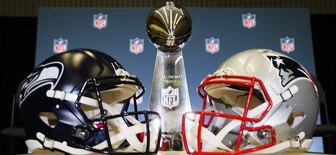With the 2020 Tokyo Olympics kicking off on July 23, one in three Americans (37%) are interested in this year’s Games. But what sports are they most likely to be tuning in to?
After winning a record 28 Olympic medals throughout his career, including five gold medals at the 2016 Rio Olympics, American swimmer Michael Phelps has officially retired. But Americans might still be tuning into the swimming events at this year’s games. Among those Americans who are interested in this year’s Olympics, swimming tops the list of favorite Olympic sports, at 43%. A similar figure (39%) say artistic gymnastics is one of their favorite events, while 36% say it’s diving. Roughly one in five Olympics fans say beach volleyball (20%), basketball (19%), and rhythmic gymnastics (19%) are among their favorite summer Olympic events.
Female Olympic fans (58%) are almost three times as likely as men (20%) to say artistic gymnastics is one of their favorite summer Olympic sports. Women are also more likely than men to choose diving (43% vs 29%) and rhythmic gymnastics (29% vs 9%) as their favorite sports.
Men are about three times as likely as women to say boxing is one of their favorite sports (22% vs 7%). They’re also more likely than women to say basketball (24% vs 14%) and beach volleyball (24% vs 17%) are among their favorite summer Olympic events.
Related: Americans are split on banning Sha’Carri Richardson from the Olympics for positive marijuana test
See the toplines and crosstabs from this YouGov Daily Poll
Methodology: 1,000 U.S. Citizens, aged 18 and over, were surveyed for this poll on July 16 - 19, 2021. Respondents were selected from YouGov’s opt-in Internet panel using sample matching. A random sample (stratified by gender, age, race, education, geographic region, and voter registration) was selected from the 2016 American Community Study. The sample was weighted based on gender, age, race, education, news interest, and 2016 Presidential vote (or non-vote). The margin of error for the entire sample is 3.6%












